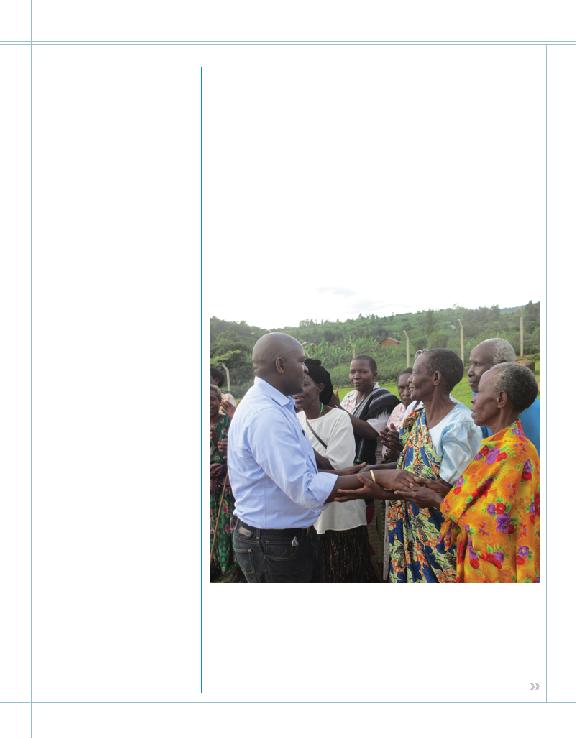
order to get an education, you must have
a uniform; you must buy pencils. I grew
up with many children who could not go
to school because their parents could
not afford a pencil. My dad would buy a
pencil and cut it into five pieces. Seeing
that kind of injustice upset me because
my best friends couldn't go to school.
I finished school at the time AIDS was
coming through Uganda. Here I was with
a scholarship for Columbia and my brother
was dying of HIV back home. Even with
everything going on, children were still
dropping out of school because they didn't
have pencils. Education in Uganda is the
only way to break the cycle of poverty.
Parents would send their children to
school, hoping and praying that when the
children would finish school, they would
come back and take care of their parents.
Men and women will do everything they
can to send their children to school
they will forgo buying a dress or shirt for
themselves because they know when their
children come back the children will buy
shirts and dresses.
passed away and left behind a son infected
with HIV. My brother left behind three
children who became my responsibility.
Here I was a young man who just finished
school in America, and I educated them.
While I was doing that, my commitment
was to take them back to the village where
my parents lived still. I would go on that
eight-and-a-half hour drive just so my
nieces and nephews could stay connected
with their grandparents. The depressing
thing, when going back is that you would
see grandmothers and grandchildren, but
there would be no one in the middle. The
grandmothers who invested everything in
their children are left with nothing because
of AIDS. The grandmothers would form a
line around my parents house, knowing
that I went to school. The thought was that
once they would walk there, I would give
"This is too many." So, I decided let's do this school where we will have children and make
it a nonprofit and serve this generation of children who would never otherwise get school.
a difference?
make a difference." When people understand that they can make a difference to a child
in Uganda, that difference is real. Americans spend a lot of money on toys and cars, and
they get all these gifts from their grandparents. Many make choices like drinking too much
because they have too much money to spend. Any person can make a difference. When
you look at me, growing up in a poverty-stricken village, I've now grown to write a book
and build two schools. Making a difference is not just for Warren Buffet. Many can do it; I
have done it.
of seven young boys. I was born with determination. People will discourage you; funds
will not come when you need them. There will be so many obstacles. Do not give up! If
you can't do it, find a cause and be passionate. Everyone has talents; find those who have
the talents you need. You cannot give up when you know you are doing the right thing.